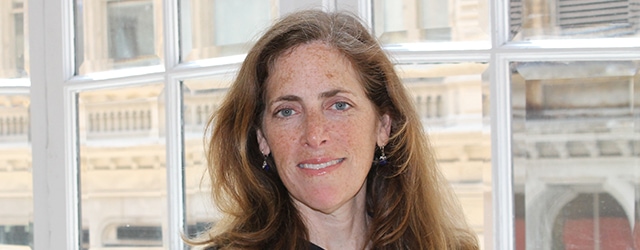As global co-head of F&A (food and agribusiness) Innovation at Rabobank, Anne Greven oversees FoodBytes!, a start-up competition; and Terra, an accelerator program. She speaks with Global Finance about the bank’s strategic focus on financing solutions to world food problems.

Global Finance: Your bank set out to develop global expertise in a specific sector, to parlay that to a competitive advantage. Is what you’re doing unique?
Anne Greven: I see it like what Silicon Valley Bank did 25 years ago. They said, OK, we’re in the heart of the tech space. We want to be the bank in tech. We want to own that space. They created financial connections, e.g., for Google and LinkedIn. They became their bank. Here, we’re identifying our clients of the future in F&A. It’s taking a long-range view. No other bank is applying an industry-focused approach in this way, as far as I know.
GF: What shapes your focus, which ranges from conservation, robotics and precision agriculture to food as medicine and more?
Greven: Those are areas where corporates are looking for innovations too, and we’re marrying that with the trends we’re seeing. Globally, there’s a need to address the food shortage; because consumers are demanding it, and they’re prepared to pay more for sustainable food. We also know that start-ups are beginning to take top-line sales from the traditional channels in a very big way. Through FoodBytes! and Terra, Rabobank is bringing start-ups and corporate clients to the same table.
GF: Any early success stories?
Greven: There is Imperfect Produce, a California start-up. They put [rejected] produce into the food stream instead of having it be made into feed. They recently raised $8 million. Another is ReGrained, which upcycles spent beer grain into a flour used by many consumer packaged-goods companies. They worked in Terra with a company called Griffith Foods, which went on to invest $2.5 million in them. About 92% of the start-ups that have have been on our stage are still active companies. For a start-up, that’s pretty good; but have any of them gone public yet? No.
GF: How do your efforts relate to angels, venture capital, etc.?
Greven: There are still angel investors. They actually come to our events. Venture capitalists too. This isn’t in lieu of that.
GF: What’s hot right now in F&A?
Greven: Meat alternatives is still a very hot segment. Anything around the depletion of resources is huge. Biomes and how they create soil health are definitely an interesting area. In stores, we’re looking at dynamic pricing. Upcycling so-called food waste; data tells us there is enough food to feed the world, but about 40% of it gets thrown away. Blockchain is going to be valuable in certain areas. There was a lot of hype at the beginning—blockchain was going to be the answer to everything—but there are some useful new things in source verification.
GF: How big is agribusiness in Rabobank’s overall book?
Greven: Within the Netherlands, Rabobank is a normal bank. Any capital deployed outside the Netherlands is F&A or renewable energy. Outside the Netherlands, F&A is probably 80% of our business.
GF: As long as we’ve been tracking it, Rabobank has been one of the safest banks in the world. What’s your secret?
Greven: Our market products are plain vanilla. We used to have derivatives, but we got rid of them after the last economic crisis. The biggest problem we’ve had in the current markets is we’re just not competitive. Our capital is expensive. So creating a knowledge-based and advisory-type business is a way of increasing our returns.



